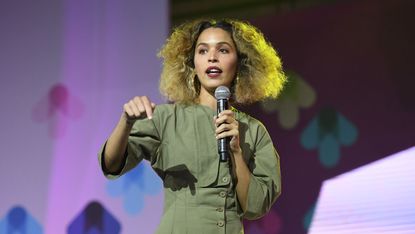

Cleo Wade has a knack for delivering exactly the right wisdom, precisely when you need it. Follow her on Instagram, where she now has more than 316,000 followers, and—in between photos at fashion shows seated alongside Gloria Steinem and Huma Abedin—you’ll find her signature poignant poetry and well-timed pick-me-ups, written in her distinctive, artful scrawl: “Just a friendly reminder—no one has got it all totally figured out” and “Stop worrying about what you should do—get to work on what you can do.”
Called the “Millennial Oprah” by New York magazine, the Internet poet and author of the forthcoming book Heart Talk: Poetic Wisdom for a Better World, was tapped by TEDWomen this year to do what she does best: Illuminate the way forward at a time when many are feeling lost and hopeless. And boy, did she deliver. We caught up with Wade just after she’d freed herself from the throng of fans waiting to greet her outside the event, and talked about the small improvements we can all make—ones that have the potential to add up to big, world-shifting progress.
Marie Claire: What do you hope people take away from your TED Talk?
Cleo Wade: If there’s one thing I never take for granted, it’s having a platform to not only make myself heard, but lend my voice to others. So when I was given a huge platform like TED, I was like, Oh shit! Like, What am I going to say? I wanted to make sure it was something you could sink your teeth into. I focused on writing something where people didn't walk away and say, “I want to be a better person,” but rather, “I am going to be a better person, and here’s how.”
“I am going to be a better person, and here’s how.”
The theme of the conference was bridges and the interesting thing to me about that concept is that the big bridges of our lives feel unattainable if we don't learn how to cross the small bridges first. So, in a world where there’s so much noise and the entry point to activism has so many barriers, I thought to myself, You know, it’s actually these micro-decisions and micro-connections that create our macro impact on the world. So when I wrote the talk I wanted to make it really clear that it’s not that hard, and it’s small changes that make the biggest impact and eventually become big changes.
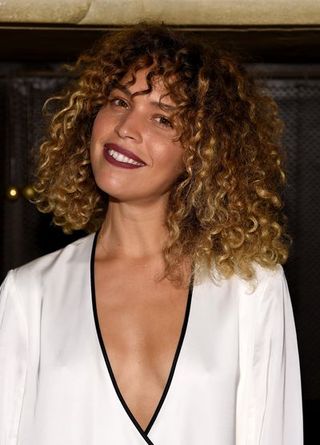
MC: It seemed like you were trying to cut through the powerlessness many of us are feeling now.
CW: We live in this world where we get really vocal and upset about something like the U.S. pulling out of the Paris Climate Accord, but in your own life, are you recycling? Are you going to Starbucks every single day and getting three new cups? Or are you buying the reusable one? I think that a lot of times we jump into activism, but then feel deflated because the problems just feel so big. It’s like, What can I even do? And I’m like, “Well, you can start composting. You can start saying, ‘I don’t need a plastic bag.’ You can see if you can lobby to get plastic bags removed from your grocery stores altogether.” Stepping into your own power is something we’re capable of doing with much more ease than we could ever imagine.
MC: Another point I found resonant is the idea that we just need to care about each other more.
CW: I think we need to remember that our actions are rarely neutral. So when you walk down the street looking at your phone and thinking you’re just being in your own world so you’re not really affecting anyone, it actually is. Because if you looked up and said “hi” to someone, or acknowledged someone’s dignity, you could change their whole day. It’s important to recognize that there really is no neutral, especially in this time. You’re either actively saying, “Let’s make this environment better, let’s make my community better, let’s make my friend group better, let me make myself better, let me be a better listener, let me be a better friend,” or you’re part of the problem.
You’re either actively saying, “Let’s make this environment better,” or you’re part of the problem.
MC: Tell us about your, “Are You Okay?” project.
CW: That is one of my favorite things I’ve ever done. I created a booth called the “Are You Okay? booth,” it was modeled after Lucy from The Peanuts, and it was free peaceful and loving conversation. My biggest takeaway was the number of people who felt like they didn’t deserve to take up space in the world. We have to remember that when we look at how and who we celebrate—when we’re not celebrating people who aren’t a size two, or of different nationalities, backgrounds, and gender, etc., we’re saying there’s no room for them. We talk a lot about the importance of representation, but we don’t realize the psychological trauma that not being seen has on people.
Stay In The Know
Marie Claire email subscribers get intel on fashion and beauty trends, hot-off-the-press celebrity news, and more. Sign up here.
The other thing I heard a lot was people who just entered the workforce, and were like, “I thought that when I got the job, I’d be happy, and that my job would make me happy.” It’s important to remember that we don’t have careers, we have lives. And it’s never too late to reinvent or redesign yourself—you have this power to constantly shift and change.
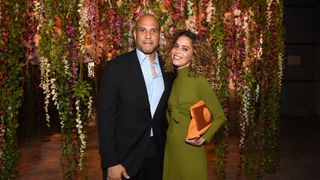
MC: What do you make of all that is happening with women right now, from the Women’s March to #MeToo?
“It’s never too late to reinvent or redesign yourself.”
CW: Around the time of the first women’s march, I was thinking about all of the people marching all over the world, and wondering, What do all of these people have in common? What could be the thread between my mom marching in Louisiana and someone doing the same in New Zealand? And then I realized, they all know silence—they all know being shocked into silence, or having to survive in silence. And so I think that in this exact moment what I’m most inspired by are the voices that are making themselves heard. And what I look forward to the most is hearing women really dive into it. Because it’s amazing to hear someone say, “Yes, me too,” but what also helps us to dismantle things is understanding every layer of what that “me too” meant. Because what I don’t want is for Harvey Weinstein to be winning an Oscar in 20 years and for the next actresses all be working with him, which is what happened with Woody Allen. To ensure that doesn't happen, we can’t just be shocked. We need to talk about every psychological layer that exists within the culture of sexual assault and abuse and this war on women that silences them.
MC: What can you tell us about your book, Heart Talk, which publishes in March?
CW: I’m so excited about it! Most people see my work online or on a billboard or in these places where they can’t hold it and touch it. I want to make things that people can use. So I didn't want to make a book, I wanted to make a tool you can use in your life. Even when I was writing it, I was like, “Can we not call it a book? Can we call it a friend?” I wrote this book to be a companion. A third of it is traditional poetry, a third is my notes, and a third is what I call “kitchen table conversations,” which is basically what it would be like if we were at my house right now having a glass of wine. It’s really not precious. It should, hopefully, feel like something you can write in. If you want to rip a page out and put it on something, you should feel like you can.

Kayla Webley Adler is the Deputy Editor of ELLE magazine. She edits cover stories, profiles, and narrative features on politics, culture, crime, and social trends. Previously, she worked as the Features Director at Marie Claire magazine and as a Staff Writer at TIME magazine.
-
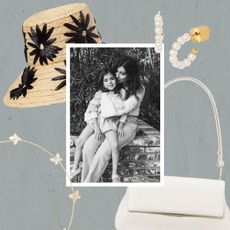 15 Gifts Every Stylish Mother Figure Will Absolutely Adore
15 Gifts Every Stylish Mother Figure Will Absolutely AdoreSponsor Content Created With Kate Spade New York
By Natalie Gray Herder Published
-
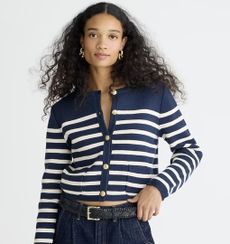 The J.Crew Sale Has Everything on My Spring Outfit Mood Board
The J.Crew Sale Has Everything on My Spring Outfit Mood BoardThe perfect fashion destination to shop for warm-weather looks.
By Lauren Tappan Published
-
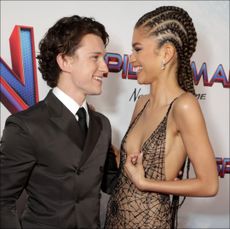 Zendaya and Tom Holland Have Discussed Marriage, Source Claims
Zendaya and Tom Holland Have Discussed Marriage, Source ClaimsBut right now they're busy with work.
By Iris Goldsztajn Published
-
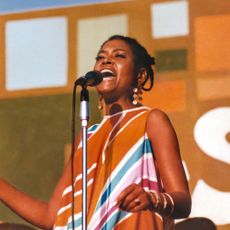 Documentaries About Black History to Educate Yourself With
Documentaries About Black History to Educate Yourself WithTake your allyship a step further.
By Bianca Rodriguez Published
-
 The Unstoppable Alia Bhatt
The Unstoppable Alia BhattBollywood’s silver-screen darling is both at the top of her game and just getting started.
By Neha Prakash Published
-
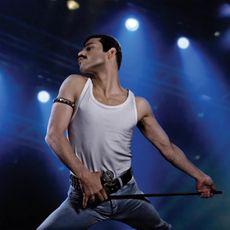 The 30 Best Movies on Hulu Right Now
The 30 Best Movies on Hulu Right NowFrom 'Fight Club' to '10 Things I Hate About You.'
By Brooke Knappenberger Published
-
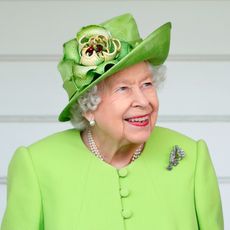 Queen Elizabeth Has Passed Away at 96
Queen Elizabeth Has Passed Away at 96After a 70-year reign, the queen passed away at her home in Balmoral, Scotland.
By Jenny Hollander Published
-
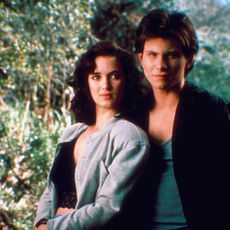 The 50 Best '80s Movies
The 50 Best '80s MoviesAn official roundup of the decade's standout films.
By Quinci LeGardye Last updated
-
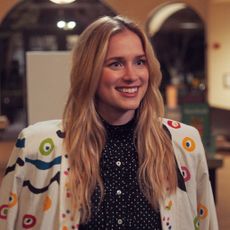 Elizabeth Lail and Dustin Milligan Compete in 'How Well Do You Know Your Co-Star?'
Elizabeth Lail and Dustin Milligan Compete in 'How Well Do You Know Your Co-Star?'The stars of 'Mack & Rita' could barely hold it together during a round of trivia.
By Brooke Knappenberger Published
-
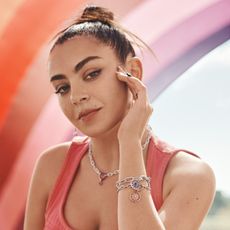 Charli XCX Isn't Here to Appease Anyone
Charli XCX Isn't Here to Appease AnyoneThe pop star talks authenticity, her new album, and taking care of herself while on tour.
By Gabrielle Ulubay Published
-
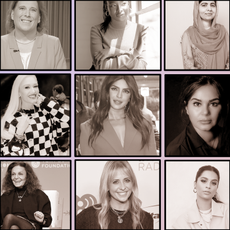 What 'Femininity' Means in 2022
What 'Femininity' Means in 2022Malala, Amanda Gorman, Priyanka Chopra Jonas, and more define the word on their own terms.
By Neha Prakash Published